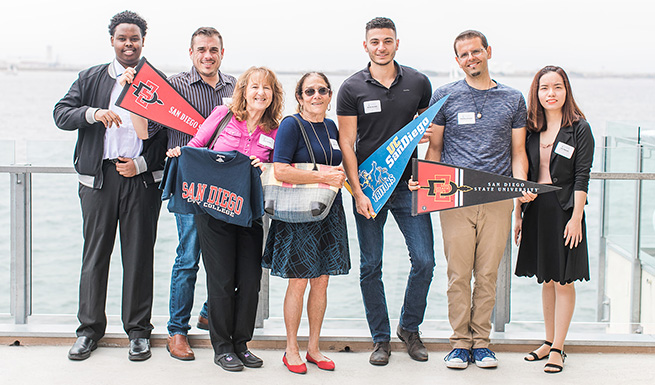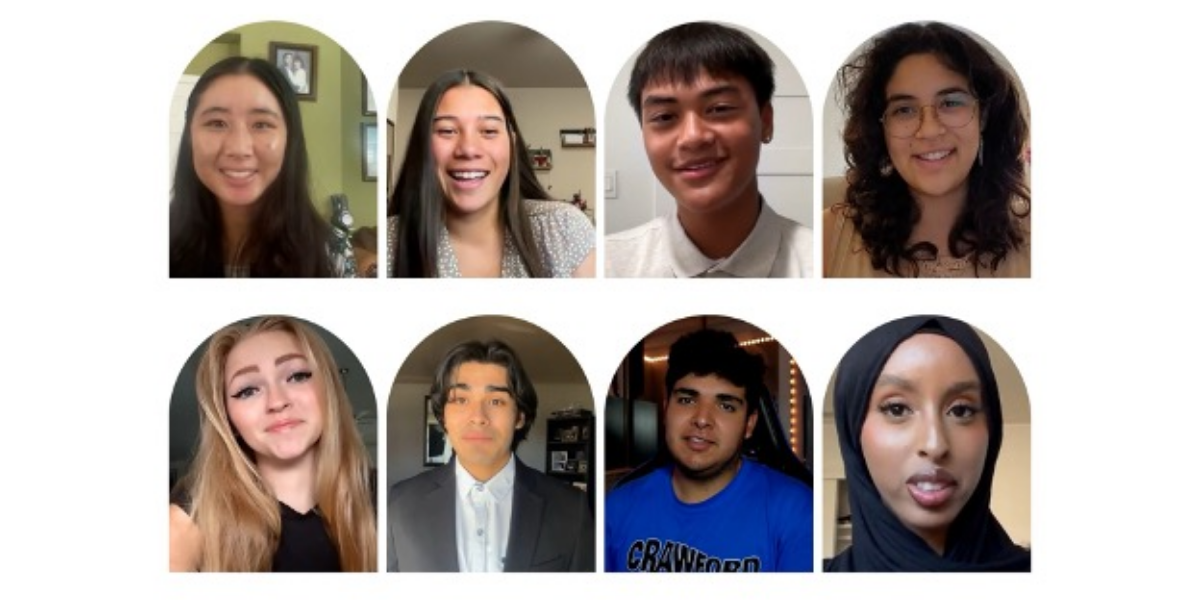It’s that time of year when students make decisions about what college or university they will attend this fall. Research shows that people overwhelmingly benefit from attending college, whether it’s a two-year or four-year institution or beyond.
In fact, according to an 2022 economic impact report from the San Diego Community College District, San Diego community college students will receive a cumulative present value of $2.3 billion in increased earnings over their working lives.
Declining Enrollment
Still, data continues to show declining enrollment in higher education nationally as the COVID-19 pandemic has gone into its third year.
According to the U.S. Census Bureau, more than 937,000 California college students surveyed in December 2021 through February 2022 decided to cancel all plans to take college classes for the spring term.
The decline in enrollment is reflective of larger demographic trends, but it has been exacerbated by the pandemic especially for students from historically under-resourced communities who faced basic needs insecurity. Lastly, research shows that higher education is a critical component to fostering equity of opportunity for low-income and first-generation college students, or those who are the first in their immediate families to enroll in college.
This underscores the importance of community-based college access and success organizations, like those involved with The San Diego Foundation Community Scholars Initiative, which is designed to increase the persistence and completion rates of student populations that are most underrepresented and furthest from opportunity in the San Diego region’s post-secondary graduating class.
Building a College-Going Culture
For first-generation college students, understanding the importance of higher education may not be a message they’ve been exposed to in their communities.
That’s why it’s important to build a “college-going culture,” or “the environment, attitudes and practices in schools and communities that encourage students and their families to obtain the information, tools and perspective to enhance access to and success in post-secondary education,” as defined by the National Association of College Admission Counseling.
That’s why the programming of the Barrio Logan College Institute, a Community Scholars Initiative partner, is so critical. The community-based organization, which serves a predominantly low-income Latino community, starts with students in the third grade and includes a Parent Advocacy Program. When students and their families are aware of the opportunities higher education provides, it’s that much easier for high school seniors to plan for the college application process.
Exposure to Careers
A vital component of college success is career planning.
According to the National Career Development Association, research shows that participating in a career planning course contributes to students’ occupational engagement, positive career beliefs, self-efficacy and – most importantly – positively impacts their continued enrollment and eventual graduation from college.
Additionally, when students have selected a career path, their time spent in college – and the numbers of years they attend before obtaining a degree – is more focused, reducing their overall costs and helping them enter the workforce more quickly.
Both the Ocean Discovery Institute and the Urban League of San Diego County’s Project Ready include exposure to science, technology, engineering and math, also known as STEM disciplines, in their college preparation programming.
For example, Ocean Discovery Institute’s College Access Mentoring Program pairs participants with mentors that reflect the student’s career path, racial and ethnic background, and personality type. Meanwhile, Urban League of San Diego County regularly brings in guest speakers to educate students about their profession and career path.
Access to Applying
When it comes to getting into college, there’s a laundry list of items for students to complete from applications and personal essays to finding out how to pay for tuition and more.
For students who come from backgrounds that are historically under-represented in higher education, the “checklist” is even more intense because they have few – if any – people in their immediate circles who can assist them.
Thankfully, community-based college access and success organizations provide college application assistance. For example, Reality Changers hosts the College Apps Academy, which serves high school seniors and provides yearlong guidance with the entire college application process, including school research and selection, college essay writing and editing, and application submission.
Similarly, the Sweetwater Union High School District Tenacity Nurturing Talent program provides a comporable curriculum for 11th and 12th grade students that explores topics ranging from soft skills to how to write personal essays.
Paying for Tuition
There’s also the daunting process of filing the Free Application for Student Aid (FAFSA) and applying for scholarships, either with colleges and universities or with individual nonprofit organizations. Research shows that for every $1,000 in grant or scholarship support a student receives, they are 5 percent more likely to continue their education.
Many Community Scholars Initiative partners offer financial application assistance, especially for scholarships offered through The San Diego Foundation Community Scholarship Program.
Additionally, some Community Scholars Initiative partners have their own scholarship programs, like MANA de San Diego, which is focused on developing future Latina leaders through its Hermanitas (Spanish for “little sisters”) mentoring program. MANA de San Diego also guarantees first-year scholarships for Hermanitas program graduates.
Holistic Student Support
The San Diego Foundation Community Scholars Initiative is dedicated to helping hundreds of young San Diegans prepare for, pay for and persist through college.
Despite their talents and aspirations, first-generation, low-income and underrepresented students face unique and considerable barriers to achieving their academic dreams.
The Community Scholars Initiative works to provide financial support and critical wraparound services that bolster academic achievement through need-based scholarships for students, and grants to nonprofit organizations preparing students for success in the college environment.




